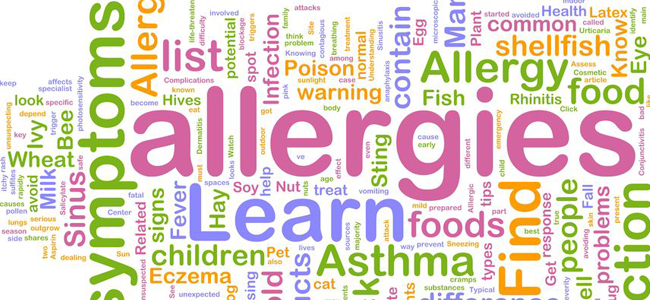Today’s post comes from John Dunstan, a key member of the support team at KidCheck.
Allergies have increased steadily over the last fifty years1, and this increase affects your ministry. Eavesdrop on a typical conversation among a group of parents, and the issue of allergies will likely come up.
- About 6% of children aged zero to two years have a food allergy
- About 9% of children aged three to five years have a food allergy
- About 8% of children aged six to ten years have a food allergy
- Of children with food allergies, 38.7% have severe reactions2
There’s a good chance a child in your care will have a food or other allergy (like an allergy to bees). Utilizing an efficient and accurate method to be aware of and communicate allergy and medical information between parents and those caring for their children is vitally important. Also important is how to respond in the event of an allergic or medical emergency. Here are three key reasons to consider improving your allergy alert, communication, and response systems.
Child Safety
Proactively planning how to communicate with parents about allergy and medical information helps keep children out of danger. Awareness of the issue is the first step in taking precautions to pro-act rather than react. While you may not currently have children in your care with severe allergies, planning now prepares you should an emergency arise. Take the initiative to increase preparation and communication. Utilizing a children’s check-in system allows parents to communicate important allergy and medical information, and is one way to help keep children with allergies safe.
There are some key elements to consider no matter what system you utilize for allergy management and safety. Make it easy for parents to quickly and easily provide the most current information regarding their child’s allergy and medical information. Ideally, use a system that allows parents to update this information themselves. Another important characteristic is a system that gives volunteers easy access to allergy and medical information. The ability to quickly contact the child’s guardian should an emergency occur is also helpful.
In addition to communicating with parents about allergy information, consider implementing other measures to keep children safe. Once the communication system is established, create response plans regarding how your team will react should an emergency occur. Familiarize yourself with common allergens and how to respond should a child react. For example, learn how to treat someone who reacts to peanuts. Minimize allergen exposure at your facility. For example, check ingredient labels for nuts before serving a snack.
Additionally, train volunteers to respond appropriately to medical emergencies. Keep a first aid kit and medical supplies on hand and alert staff where they are. Periodically practice responding to emergency situations. Go a step further and seek out emergency responders to help create response plans and provide additional training.
Parent Peace of Mind
Whether an allergic reaction occurs or not, parents worry an emergency might occur while you care for their child. Remember, you serve not just the kids, but also their parents. While you care for their child, parents are using their time for worship. If they constantly feel concern tugging in the back of their minds about a child’s allergic reaction it may take away from their personal time.
The simplicity of a parent knowing they’ve communicated their child’s allergy, that you are prepared should an issue arise, and that you can easily contact them should you need to, brings peace of mind. Creating an effective medical communication and response system allows parents to focus on and enjoy their own journey or growth while you care for their child.
Decreased Liability
Everyone hates to think someone might pursue a lawsuit, but it’s naïve to believe no one would sue should an incident occur. Unfortunately, it happens. Giving parents every opportunity to personally and accurately communicate their child’s allergies to your volunteers decreases your organization’s liability should an allergy emergency arise. Having a system that also enables your staff to quickly and easily access and use contact information for parents decreases liability even more.
Should an incident occur, document it. Keep a folder with reported allergy/medical incidents. Take pictures, if appropriate, and include these in the file. Additionally, give parents a note or verbally communicate with them about any incident and how you responded (including medications administered). Such steps decrease liability even further while effectively caring for those you serve.
Conclusion
Implementing a plan to address children’s allergy issues is essential. Successful allergy management planning includes having accurate information, using it effectively, and communicating with parents. Implementing such a system can be a great asset to your ministry.
References
- World Health Organization. White Book on Allergy 2011-2012 Executive Summary. By Prof. Ruby Pawankar, MD, PhD, Prof. Giorgio Walkter Canonica, MD, Prof. Stephen T. Holgate, BSc, MD, DSc, FMed Sci and Prof. Richard F. Lockey, MD. (Found at: http://www.aaaai.org/about-the-aaaai/newsroom/allergy-statistics.aspx)
Gupta, R, et al. The Prevalence, Severity and Distribution of Childhood Food Allergy in the United States. Pediatrics 2011; 10.1542/ped.2011-0204. (Found at:http://www.aaaai.org/about-the-aaaai/newsroom/allergy-statistics.aspx)
KidCheck provides secure children’s check-in systems with a focus on child safety. Streamline your check-in process, improve child safety, easily track attendance, and create a positive parent and visitor experience. Learn more with a free demo. For more information, visit www.kidcheck.com






